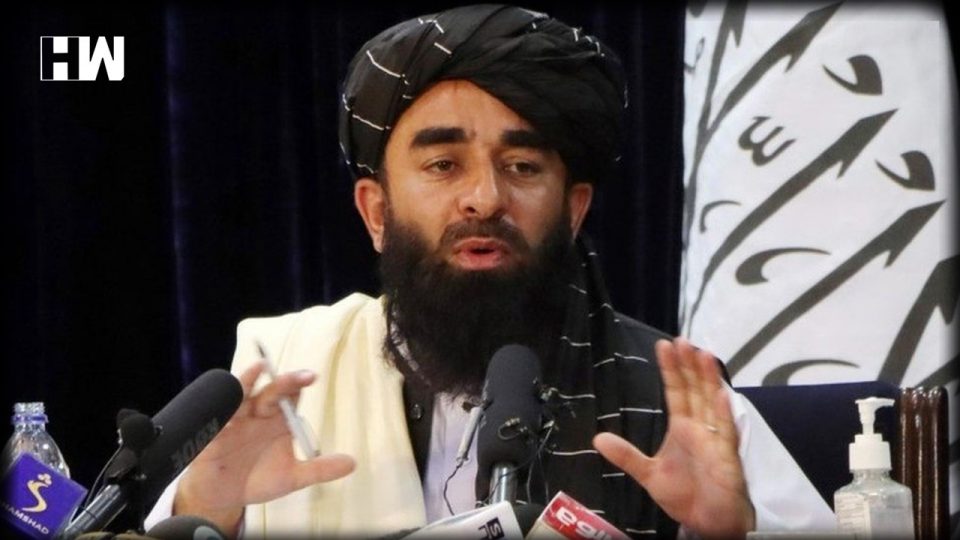The Taliban is open to Indian efforts to restart people-centric development projects, including urban infrastructure, reported Khaama Press
Kabul [Afghanistan]: The Taliban is open to Indian efforts to restart people-centric development projects, including urban infrastructure, reported Khaama Press.
Taliban’s Head of Political Office, Suhail Shaheen said Afghanistan is open to Indian investment, including urban infrastructure, and assured of a peaceful working environment for Indian companies. He emphasised that the “security of Indians is our responsibility, and we assure them”. In addition, Afghanistan’s Foreign Ministry has also sought India’s diplomatic presence in the country for the completion of ‘unfinished projects’ initiated by New Delhi.
Over the last two decades, Indian public and private sector entities had invested around USD 3 billion in Afghanistan, mainly in the country’s infrastructure sector.
India’s engagement with Afghanistan as a development partner includes more than five hundred projects spread across each of the 34 provinces in critical areas of power, water supply, road connectivity, healthcare, education, agriculture and capacity building.
Around 433 High Impact Community Development Projects (HICDP) were completed with Indian financial support in all provinces of Afghanistan before the Taliban’s takeover of Kabul in 2021, reported Khaama Press.
Recently, Afghanistan’s Ministry of Urban Development and Housing (MUDH) evinced interest (December 3) in the improvement of relations and the resumption of stalled projects in the country with the help of India.
In this regard, the Afghan Minister of MUDH communicated with the Indian Charge d’Affaires in Kabul. The latest interaction between India and the Taliban came against the backdrop of regional consultations and has rekindled hope of greater Indian participation in providing relief for the people of Afghanistan.
Experts believe that the restart of these projects will decrease the level of poverty and unemployment in Afghanistan. The resumption of these projects would also create job opportunities and means for the people and drive Afghanistan out of political isolation, reported Khaama Press.
Meanwhile, India has not recognised the new regime in Afghanistan and has been pitching for the formation of a truly inclusive government in Kabul, besides insisting that Afghan soil must not be used for any terrorist activities against any country. India had withdrawn its officials from the embassy after the Taliban seized power in August 2021, following concerns over security.
However, in June 2022, India re-established its diplomatic presence in Kabul by deploying a ‘technical team’ in its embassy in the Afghan capital, reported Khaama Press.
Despite the non-recognition of the Taliban government, India has extended humanitarian assistance to the Afghan people and it has already dispatched several shipments of 20,000 metric tonnes of wheat, 13 tonnes of medicines, 500,000 doses of Covid-19 vaccine and winter clothing, according to India’s Ministry of External Affairs.
India’s presence in Kabul is a recognition of the critical power dynamics evolving in the region. After the collapse of Ashraf Ghani’s government in Afghanistan, Pakistan and its and security establishments hoped to gain ‘strategic depth’ and a free sway in Afghanistan to control India’s influence in the country due to close links between elements in the Afghan Taliban and the Pakistani military, and Inter-Services Intelligence (ISI), reported Khaama Press.
However, a year later, tensions between the Afghan Taliban and the Pakistani military have grown due to various factors, such as the Taliban’s refusal to accept the ‘Durand Line’ as the international border, activities of the Tehreek-e-Taliban Pakistan (TTP) which has some 4,000 fighters in Afghan territory and border skirmishes that have killed several Pakistani personnel.
Also, Read: Ministry Of External Affairs Says India Keeping Close Eye Covid Situation
Moreover, the Taliban has welcomed India’s initiative to hold a meeting of the National Security Advisors of Central Asian countries. Taliban also stated that it would not allow its territory to be used for any agency or powers to interfere in other nation’s internal affairs, addressing Indian concerns on the issue, reported Khaama Press.
India’s presence in Afghanistan, however, remains a sensitive issue, with a majority of the current ‘technical team’ deployed in Kabul being security personnel sent in to guard the small number of middle-ranking diplomats who are largely focused on ways to help the
Afghan people grappling with humanitarian and economic crises.
A combination of a suspension of foreign aid, freezing of Afghan government assets and international sanctions on the Taliban have plunged the country, which was already suffering from high poverty levels, into a full-blown economic crisis.
(Except for the headline, this story has not been edited by HW News staff and is published from a syndicated feed.)
As an independent media platform, we do not take advertisements from governments and corporate houses. It is you, our readers, who have supported us on our journey to do honest and unbiased journalism. Please contribute, so that we can continue to do the same in future.

